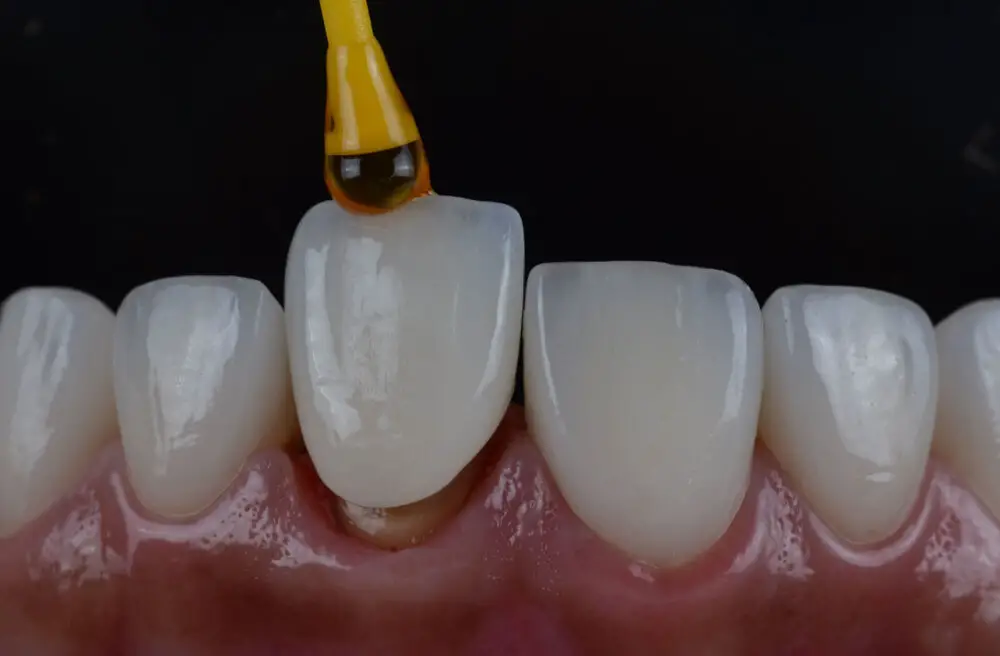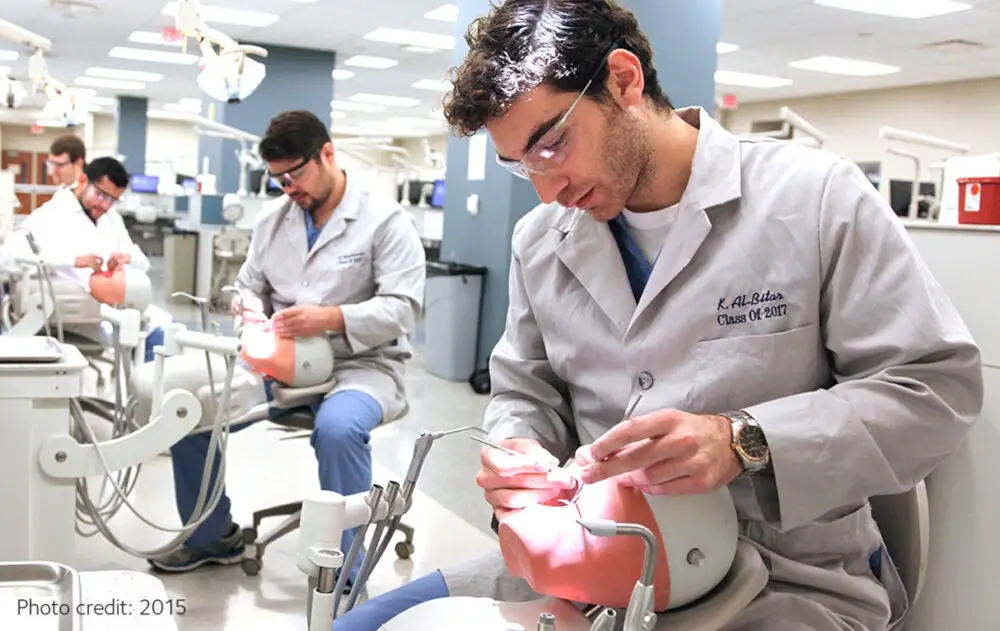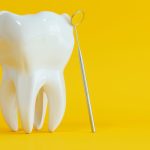Why Small Teeth Happen: Exploring the Genetics and Lifestyle Factors that Influence Dental Development

Dental health is an essential aspect of overall health and wellbeing, and small teeth can have a significant impact on one’s self-esteem and confidence. The size and shape of teeth are primarily determined by genetics, but lifestyle factors can also play a crucial role in dental development. Understanding the causes of small teeth can help individuals take proactive steps to maintain optimal dental health and prevent future dental problems. Genetics is a significant factor that influences dental development. The genes inherited from parents determine the size, shape, and structure of teeth. Some people may have a genetic predisposition to small teeth due to variations in the genes responsible for tooth development. However, environmental factors, such as diet and lifestyle habits, can also play a role in the expression of these genes. Therefore, it is crucial to maintain a healthy lifestyle to ensure that the genes responsible for dental development function correctly.
Small teeth, also known as microdontia, are a dental anomaly characterized by teeth that are smaller than average. This condition can affect both primary and permanent teeth and may occur in a single tooth or several teeth. Small teeth can result from a variety of factors, including genetics, environmental factors, and certain medical conditions. In some cases, small teeth may be accompanied by other dental abnormalities, such as irregularly shaped teeth or gaps between teeth. While small teeth may not necessarily cause any functional problems, they can have a significant impact on an individual’s self-esteem and confidence. Therefore, it is essential to understand the underlying causes of small teeth and seek appropriate treatment, which may include orthodontic treatment or cosmetic procedures such as veneers or bonding.
Dental development is a crucial aspect of overall health and wellbeing. The teeth play a vital role in the digestive system, helping to break down food into smaller, more digestible pieces. They also play a crucial role in speech, allowing us to articulate words and communicate effectively. Additionally, the appearance of the teeth can significantly impact self-esteem and confidence levels. Poor dental development can lead to a range of issues, including tooth decay, misalignment, and other oral health problems. Understanding the genetic and lifestyle factors that influence dental development is essential for promoting optimal oral health and ensuring that individuals have healthy, functional teeth throughout their lives.
The article \Why Small Teeth Happen: Exploring the Genetics and Lifestyle Factors that Influence Dental Development\ delves into the various factors that can contribute to the development of small teeth. The author discusses the role of genetics, lifestyle habits, and environmental factors in determining dental size and shape. Additionally, the article explores how dental professionals can diagnose and treat small teeth, including the use of orthodontics and cosmetic dentistry. Overall, the piece provides a comprehensive overview of the complex factors that can impact dental development, and offers insights into how individuals can optimize their oral health.
Genetics and Small Teeth

Genetics is one of the main factors that influence dental development, and small teeth are a common trait that can be passed down through family lines. In many cases, the size of teeth is determined by the width and length of the jawbone, which is largely determined by genetics. If a person inherits a smaller jawbone, they are likely to have smaller teeth that are more closely spaced together. Similarly, if a person inherits a larger jawbone, they are likely to have larger teeth that are spaced further apart. While genetics play a significant role in dental development, lifestyle factors such as diet and oral hygiene can also impact tooth size and health. Small teeth can be a cosmetic concern for many people, but they can also impact oral health. Smaller teeth may be more prone to decay and damage, as they may not be as strong or resilient as larger teeth. Additionally, small teeth can create bite issues and misalignments, which can lead to problems with speaking, chewing, and overall oral function. It is important for individuals with small teeth to take extra care with their oral hygiene, including regular brushing, flossing, and dental check-ups, in order to maintain healthy teeth and gums. In some cases, cosmetic dentistry procedures such as veneers or bonding may be recommended to improve the appearance of small teeth.
Genetic factors play a critical role in determining one’s dental development. Studies have shown that variations in specific genes can influence the size and shape of teeth, including the number of teeth that develop. These genes can affect the formation of enamel and dentin, which are the key components of teeth. Additionally, genetic factors can influence the timing of tooth eruption and the risk of developing certain dental conditions, such as cavities or malocclusion. While genetics play a significant role in dental development, lifestyle factors such as diet, oral hygiene, and environmental factors can also have an impact on the health of teeth. Understanding the complex interplay between genetic and environmental factors can provide valuable insights into why some individuals may have smaller teeth and how best to prevent or treat dental problems.
Inherited dental conditions are genetic traits that can affect the structure and appearance of teeth. One example is amelogenesis imperfecta, a condition that affects the enamel of teeth and can cause them to be discolored, brittle, and prone to decay. Another example is dentinogenesis imperfecta, which affects the dentin layer of teeth and can cause them to appear translucent and be easily damaged. Both of these conditions are caused by mutations in specific genes and can be inherited from one or both parents. While these conditions cannot be prevented, early diagnosis and treatment can help manage symptoms and improve overall oral health.
The size and shape of teeth are largely influenced by genetics, with variations in tooth morphology being passed down from one generation to the next. Certain genes play a critical role in tooth development, regulating the formation of enamel, dentin, and other components of the tooth structure. Studies have identified specific genetic mutations that can lead to abnormal tooth size and shape, such as the presence of extra teeth or teeth that are smaller than average. However, genetics is only one factor that can impact dental development, with lifestyle factors such as diet, oral hygiene, and environmental exposures also playing a role in determining the health and appearance of teeth.
Lifestyle Factors and Small Teeth

When it comes to the size of our teeth, genetics play a significant role. However, lifestyle factors can also have an impact on dental development. One such factor is diet. Consuming a diet high in sugar and processed foods can lead to tooth decay and gum disease, which can inhibit the growth and development of teeth. On the other hand, a diet rich in vitamins and minerals, particularly calcium and vitamin D, can promote healthy tooth development. Another lifestyle factor that can impact tooth size is oral hygiene. Poor oral hygiene can lead to tooth decay, gum disease, and other dental problems that can stunt the growth of teeth. Brushing and flossing regularly, along with routine dental check-ups, can help prevent these issues and promote healthy tooth development. Additionally, habits such as smoking and excessive alcohol consumption can also have a negative impact on dental health and development, leading to smaller teeth and other dental problems over time. Therefore, lifestyle factors should be taken into consideration when it comes to dental development and overall oral health.
Nutrition plays an essential role in dental development. Adequate amounts of calcium, vitamin D, and phosphorus are vital in the formation of strong teeth and bones. A diet lacking in these nutrients can result in weakened teeth, delayed tooth eruption, and enamel defects. Additionally, excessive intake of sugary and acidic foods and drinks can lead to tooth decay and erosion, which can also negatively impact dental development. It is important for individuals to maintain a balanced and nutrient-rich diet to promote healthy dental development throughout their lifetime.
Smoking, alcohol, and drug use can have a detrimental effect on teeth. Smoking tobacco products can cause yellowing of teeth, bad breath, and an increased risk of gum disease and tooth loss. Heavy alcohol consumption can also lead to yellowing of teeth, dry mouth, and an increased risk of tooth decay and gum disease. Drug use, particularly methamphetamine and cocaine, can cause severe damage to teeth, including erosion of enamel, tooth decay, and tooth loss. Additionally, drug use can lead to dry mouth, which can further increase the risk of tooth decay and gum disease. Overall, it is important to avoid or limit smoking, alcohol, and drug use to maintain good oral health and prevent dental problems.
Oral hygiene practices play a significant role in tooth size and overall dental health. Poor oral hygiene, such as infrequent brushing and flossing, can lead to plaque buildup and eventual tooth decay. This, in turn, can cause a reduction in tooth size due to the loss of enamel and dentin. Additionally, diet can also impact tooth size, as a lack of certain nutrients can hinder dental development. On the other hand, a balanced diet with sufficient vitamins and minerals can promote healthy tooth growth. Therefore, maintaining good oral hygiene practices and a healthy diet are essential for optimal dental health and the prevention of small teeth.
Treatment Options for Small Teeth

When it comes to small teeth, there are several treatment options available depending on the severity of the case. In mild cases, cosmetic dentistry procedures such as veneers, bonding, and contouring may be enough to improve the appearance of the teeth. Veneers are thin, custom-made shells that are placed over the front of the teeth to improve their shape, size, and color. Bonding involves the application of a tooth-colored resin to the surface of the teeth, which is then hardened with a special light. Contouring involves the removal of small amounts of tooth enamel to reshape the teeth. These procedures can be completed in just one or two visits to the dentist and can make a significant difference in the appearance of small teeth. In more severe cases, orthodontic treatment may be necessary. Braces or clear aligners can be used to gradually move the teeth into the correct position, creating a more balanced and proportionate smile. In some cases, tooth extraction may be necessary to create enough space for the teeth to move into the correct position. Orthodontic treatment can take several months to several years, but the results can be life-changing for those who are self-conscious about their small teeth. It is important to consult with a dentist or orthodontist to determine the best treatment option for your individual case.
Orthodontic treatments for small teeth can vary depending on the specific situation and underlying cause of the issue. One common approach is to use braces or clear aligners to gradually shift the teeth into a more desirable position. In some cases, the orthodontist may also recommend the use of dental bonding or veneers to add volume to the teeth and create a more balanced appearance. Additionally, addressing any underlying genetic or lifestyle factors that may be contributing to small teeth can help to prevent future issues and improve overall dental health. Whether through orthodontic treatments, cosmetic procedures, or lifestyle changes, there are many effective ways to address small teeth and achieve a beautiful, healthy smile.
Small teeth can be a result of genetic factors or poor dental hygiene, but restorative dental procedures can effectively address this issue. One option is dental bonding, which involves applying a tooth-colored resin to the surface of the tooth to improve its appearance and shape. Another solution is veneers, which are thin shells that are custom-made to fit over the front surface of the teeth. Veneers can correct the size, shape, and color of small teeth, and they can also provide a long-lasting solution. In more severe cases, dental implants or crowns may be necessary to restore the size and function of small teeth. With these restorative procedures, individuals can achieve a more confident and beautiful smile.
Cosmetic dental procedures have become increasingly popular in recent years, especially for those with small teeth. Small teeth can be caused by various factors, including genetics and lifestyle habits. Fortunately, there are several cosmetic dental procedures available to help enhance the appearance of small teeth. One common technique is dental bonding, which involves applying a tooth-colored resin to the surface of the tooth to improve its shape and size. Another option is dental veneers, which are thin shells of porcelain or composite material that are custom-made to fit over the front of the teeth and improve their appearance. Additionally, dental crowns can be used to cover the entire tooth and improve its shape and size. With the help of these cosmetic dental procedures, individuals with small teeth can achieve a more confident and beautiful smile.
Prevention of Small Teeth

Small teeth can be a result of various genetic and lifestyle factors. However, there are certain measures that can be taken to prevent or minimize the occurrence of small teeth. Regular dental check-ups and cleanings are crucial in maintaining good oral health. Cleanings remove plaque and tartar build-up, which can lead to tooth decay and gum disease. Dental professionals can also identify any issues early on and provide treatment before they become more severe. Additionally, maintaining a healthy diet and lifestyle can promote good dental health. Avoiding sugary and acidic foods and drinks can help prevent tooth decay and erosion. Eating a balanced diet including calcium-rich foods can also promote healthy teeth and bones. Proper oral hygiene habits can also play a significant role in preventing small teeth. Brushing twice a day with fluoride toothpaste and flossing daily can help remove plaque and food debris from teeth and gums. Using mouthwash can also help kill bacteria and freshen breath. Good oral hygiene habits can prevent the build-up of plaque and bacteria that can contribute to tooth decay and gum disease. Regular use of a nightguard can also prevent teeth grinding, which can cause wear and tear on the teeth over time, resulting in smaller teeth. By taking these preventive measures, individuals can promote good oral health and minimize the risk of developing small teeth.
Early dental care is crucial for maintaining good oral health throughout life. Poor dental hygiene and neglect of dental care during childhood can have long-lasting effects on one’s dental health. It can lead to tooth decay, gum disease, and other oral health problems that can be painful and costly to treat. Moreover, early dental visits also help children develop good oral hygiene habits and learn about the importance of dental care. Parents can work with their dentists to develop a treatment plan that can ensure their child’s teeth are healthy and strong. By prioritizing early dental care, parents can help their children avoid dental problems and ensure they have a healthy and attractive smile for years to come.
Maintaining a healthy lifestyle is essential for promoting dental health. A balanced diet rich in calcium, phosphorus, and vitamin D helps to strengthen teeth and bones. Limiting sugary and acidic foods and drinks can prevent tooth decay and erosion. Regular brushing and flossing, as well as visiting the dentist for routine check-ups and cleanings, can prevent gum disease and other oral health problems. Avoiding smoking and excessive alcohol consumption can also reduce the risk of oral cancer and other dental issues. By making these healthy lifestyle choices, individuals can promote strong, healthy teeth and gums throughout their lifetime.
The role of genetics in prevention of dental issues cannot be underestimated. Our genetic makeup plays a significant role in determining the size, shape, and structure of our teeth, and our susceptibility to dental problems such as cavities, gum disease, and malocclusion. Understanding the genetic factors that influence dental development can help identify individuals who are at increased risk of developing dental problems and enable preventive measures to be taken. However, it is important to remember that while genetics plays a significant role, lifestyle factors such as diet, oral hygiene practices, and environmental factors also have a significant impact on dental health. Therefore, a comprehensive approach that considers both genetic and lifestyle factors is crucial in preventing dental issues and promoting optimal dental health.
Dental development is influenced by a complex interplay of genetics and lifestyle factors. Genetics play a significant role in determining the size, shape, and structure of teeth, with variations in genes affecting tooth size, enamel thickness, and susceptibility to dental diseases. However, environmental factors such as nutrition, stress, and oral hygiene practices can also impact dental development. Poor nutrition, for example, can lead to malnourishment and stunted growth, resulting in smaller teeth. Similarly, high levels of stress can lead to teeth grinding and clenching, which can affect tooth size and shape. Ultimately, understanding the various factors that contribute to dental development is crucial in promoting oral health and preventing dental problems.
Prevention and early intervention play a crucial role in maintaining dental health and preventing small teeth. Regular visits to the dentist, proper oral hygiene practices, and a healthy lifestyle can prevent tooth decay and gum disease, which are common causes of small teeth. Early intervention in the form of orthodontic treatment can also prevent small teeth from becoming a major problem later in life. By identifying and addressing issues early on, individuals can avoid costly and invasive dental procedures in the future. Overall, prevention and early intervention are key to promoting healthy dental development and avoiding the negative consequences of small teeth.
The future of dental research is promising, with advancements in technology and a better understanding of genetics and lifestyle factors. Researchers are currently investigating the genetic basis of dental anomalies, such as small teeth, to develop targeted treatments and preventive measures. Additionally, studies are examining the role of epigenetics, the study of how environmental factors can affect gene expression, in dental development. With the integration of personalized medicine and precision dentistry, it is likely that dental care will become more personalized, tailored to an individual’s genetic and lifestyle factors. Through continued research and innovation, the field of dentistry has the potential to greatly improve oral health outcomes for individuals worldwide.
Conclusion

In conclusion, the development of small teeth can be influenced by a variety of genetic and lifestyle factors. While some individuals may be genetically predisposed to smaller teeth, certain lifestyle habits such as poor nutrition and oral hygiene can also contribute to dental development issues. It is important to prioritize dental health and seek regular dental checkups to address any concerns early on. Additionally, maintaining a healthy diet and good oral hygiene habits can help reduce the risk of developing small teeth and other dental problems. By understanding the factors that contribute to dental development, we can take proactive steps to ensure optimal oral health and a beautiful smile for years to come.







